Our Final Exams
Every one of our online courses includes (at no extra charge) an optional Final Exam, which allows you to test what you’ve learned. However, if you would like to receive a certificate of completion for our two most intellectually challenging courses (ADVANCED Training in Conflict Management and the Critical Thinking Course) or if you want to receive CERTIFICATION for a course collection (either The Complete Program or The TKI Package), you are then required to pass the Final Exam(s).
If you make a group purchase of an online course (or a course collection), each Final Exam gives you the option of ensuring that your group members learn all the material that you purchased for them—if you decide to require them to show their mastery by passing the Final Exam(s). But we will only notify you when a group member successfully completes a Final Exam.
Exam Instructions
Select one of the (A) to (E) responses for each of the 25 items in this Final Exam. Each correct answer counts 4 points. You’ll need to receive at least 88 out of a possible 100 points in order to show mastery of the course material.
Only one exam item will appear on each page. You can change your response to an item as many times as you like. When you are satisfied with your selection for an item, click on the “Next” button on the bottom right of the question. Each item on the exam has one correct answer and you must choose one selection before you can move on to the next item on the exam.
After you click “Finish Final Exam,” you will be forwarded to another page where you’ll receive your results for the exam, including a listing of which items had the incorrect selection. If you didn’t receive a passing grade, you can review the course materials and then take the exam again. In fact, you can take the exam a total of five times, which gives you ample opportunity to learn the key principles and practices of this course. NOTE: If you don’t pass the exam on any occasion, you are the only one who receives the results. We get notified only when you receive an 88 or more points and thus have passed the Final Exam.
Sample Questions
Below is one question from each of our online Final Exams, so you can get a good idea of what to expect. Every Final Exam consists of 25 such questions. You must achieve at least an 88 out of a 100 possible points in order to pass an exam. In case you don’t pass an exam on any occasion, you’ll immediately be informed of each incorrect response. You have as many as five times to pass a Final Exam.
00. Expanding Consciousness
If an integrative solution can be developed, what role do the surrounding systems play in the person’s sense of self?
Choose one:
- (A) the systems are irrelevant to the person’s sense of self
- (B) the systems are separate from the person’s sense of self
- (C) the surrounding systems enslave the person
- (D) the systems will hopefully support the person’s sense of self
- (E) the person is fully responsible for improving his surrounding systems
0. Quantum Transformation
On the Organizational Courage Assessment, a low fear score and a high observe score suggest what type of organization?
Choose one:
- (A) a Newtonian organization
- (B) a fearful organization
- (C) a quantum organization
- (D) a courageous organization
- (E) a large organization
SEE MORE EXAM QUESTIONS
1. BASIC TRAINING
Which dimension on the TKI Conflict Model represents the extent to which a person tries to get his own needs met?
Choose one:
- (A) assertiveness
- (B) cooperativeness
- (C) protective
- (D) distributive
- (E) integrative
2. GROUP TRAINING
If there are situational similarities and ineffective conflict-handling behavior in a group, what action recommendation might be suggested?
Choose one:
- (A) transform systems and develop people
- (B) endorse systems and develop people
- (C) transfer wisdom to other settings
- (D) diagnose other critical success factors
- (E) have every group member take the TKI assessment again
3. ADVANCED TRAINING
Which psychological function supports the competing mode of conflict management?
Choose one:
- (A) sensation
- (B) intuition
- (C) thinking
- (D) feeling
- (E) extraversion
4. CULTURE MANAGEMENT
What is the primary force behind culture?
Choose one:
- (A) the reward system
- (B) peer-group pressure
- (C) directives from the boss
- (D) standard operating procedures
- (E) strategic plans
5. CRITICAL THINKING SKILLS
Normative Assumptional Analysis is based on which underlying principle?
Choose one:
- (A) people should be able to judge other people’s assumptions
- (B) assumptions are the fixed properties of stakeholders
- (C) assumptions are the changeable properties of stakeholders
- (D) cultural norms must support assumptional analysis
- (E) normal people can do assumptional analysis
6. TEAM MANAGEMENT
What is the right reason to separate peers from their immediate boss during group discussions in the culture and skills tracks?
Choose one:
- (A) members don’t feel safe to express their true opinions in front of their boss
- (B) members are too competitive in front of their boss
- (C) members fully trust their boss
- (D) the boss doesn’t plan on attending all the workshop sessions
- (E) the boss doesn’t support the improvement program
7. STRATEGY-STRUCTURE
If an organization has formed its subunit boundaries around task flow in an idealized (perfect) way, which type of task flow would be contained within work units?
Choose one:
- (A) pooled
- (B) reciprocal
- (C) dotted
- (D) independent
- (E) vertical
8. REWARD SYSTEMS
Which of the following type of information is NOT needed for members to determine the credibility of their reward system?
Choose one:
- (A) the criteria for high performance
- (B) the intrinsic rewards that are available for high performance
- (C) the performance ratings for others working at similar jobs
- (D) the rewards actually distributed to these other members
- (E) the extrinsic rewards that are available for high performance
9. PROCESS MANAGEMENT
Which of the following is NOT an essential step of process management?
Choose one:
- (A) improving processes
- (B) negotiating processes
- (C) controlling processes
- (D) describing processes
- (E) removing systemic barriers to success




